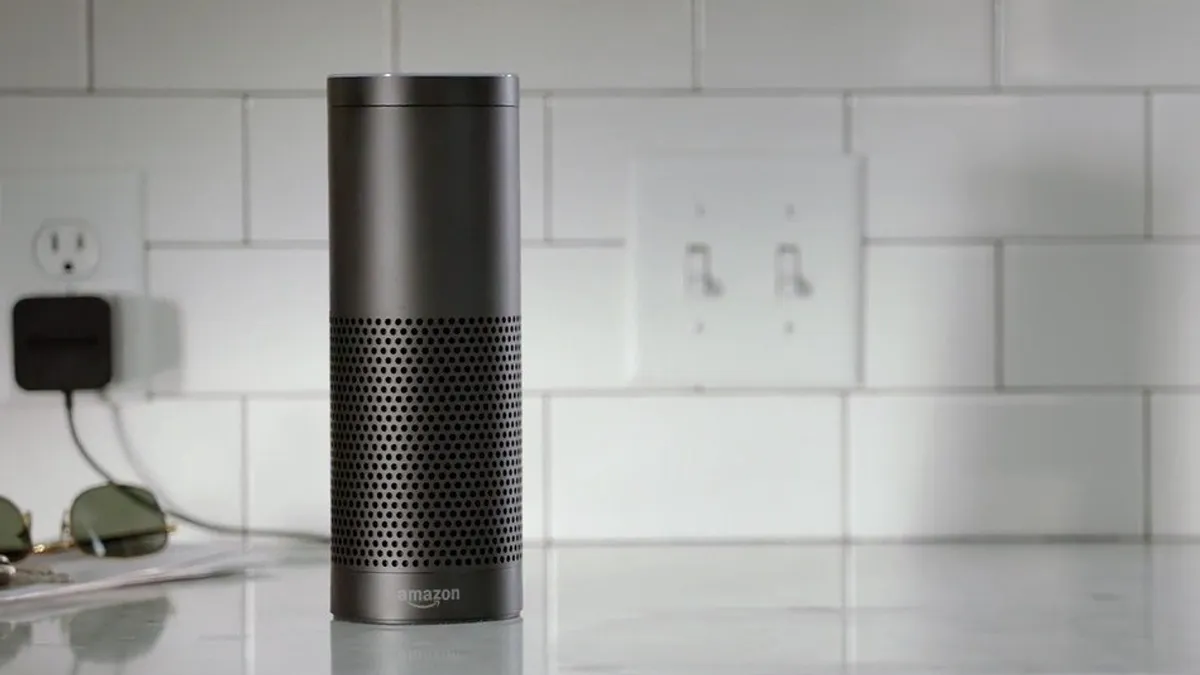Dive Brief:
-
Amazon's virtual assistant Alexa will eventually be able to provide more of its own opinions and a broader array of facts in answer to recommendation-based questions from users, according to TechCrunch.
-
The report, based on an interview with an Amazon executive at last week's Consumer Electronics Show in Las Vegas, stated that Alexa's capabilities and potential responses will be expanded through ongoing machine learning and deep learning network development.
-
The executive also told TechCrunch that Amazon has learned where Alexa's knowledge gaps are by analyzing questions real users have asked the virtual assistant that it was unable to answer. The company also said it continues to add more fact-based information to the platform.
Dive Insight:
Alexa is getting smarter, but she doesn't know everything.
It's no secret that Alexa could be one of the biggest keys to Amazon's future success, so it stands to reason that the company will do anything in its power to continue evolving the platform. Late last year, we heard a lot about new Alexa-powered devices from Amazon, but also reports that Amazon was hiring hundreds of new engineers to work on different aspects of Alexa as it seeks to keep the virtual assistant at the top of its game against growing competition. Becoming more of a thinking machine, and not just a fact-filled machine could be a logical part of that forward movement.
Many current owners would probably love the notion that Alexa could tell them what it (not "she" — not yet) thinks, as in which movie they should watch on Amazon Prime Video or which brand of shirts they should buy while having Alexa search for shirts on sale from Amazon.
Where those opinions come from, how they would be ranked and categorized, and how their dissemination would play out appear to be unknowns at this point, and that's where things could get very complicated. Will Alexa always recommend Amazon brands over others? How much more personal information will Alexa require from users to form its more thought-powered opinions and recommendations? Will a more basic "just the facts" version of Alexa still be available?
Some of these may be non-issues to users that already love Alexa and trust it implicitly. Others, who have a bit of fear when someone mentions the notion of "thinking machines" may not buy in so readily.












